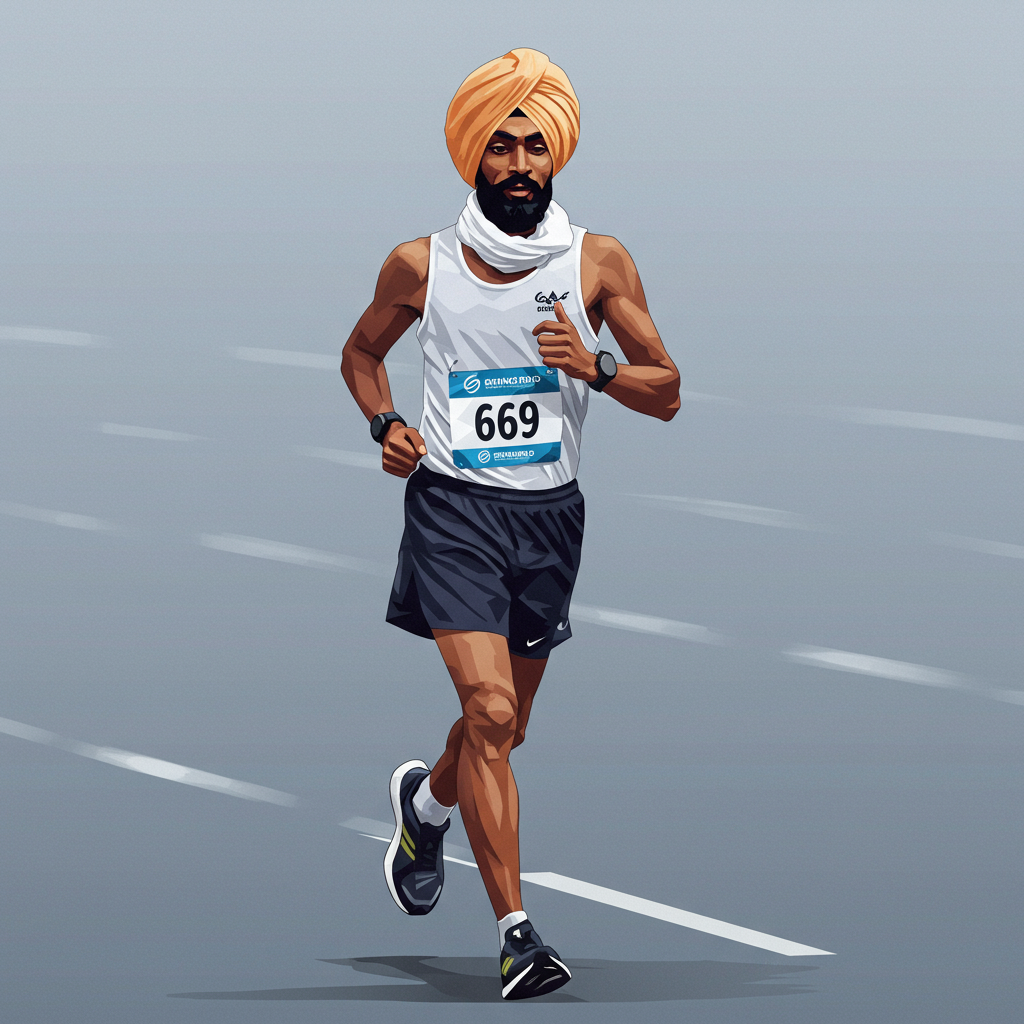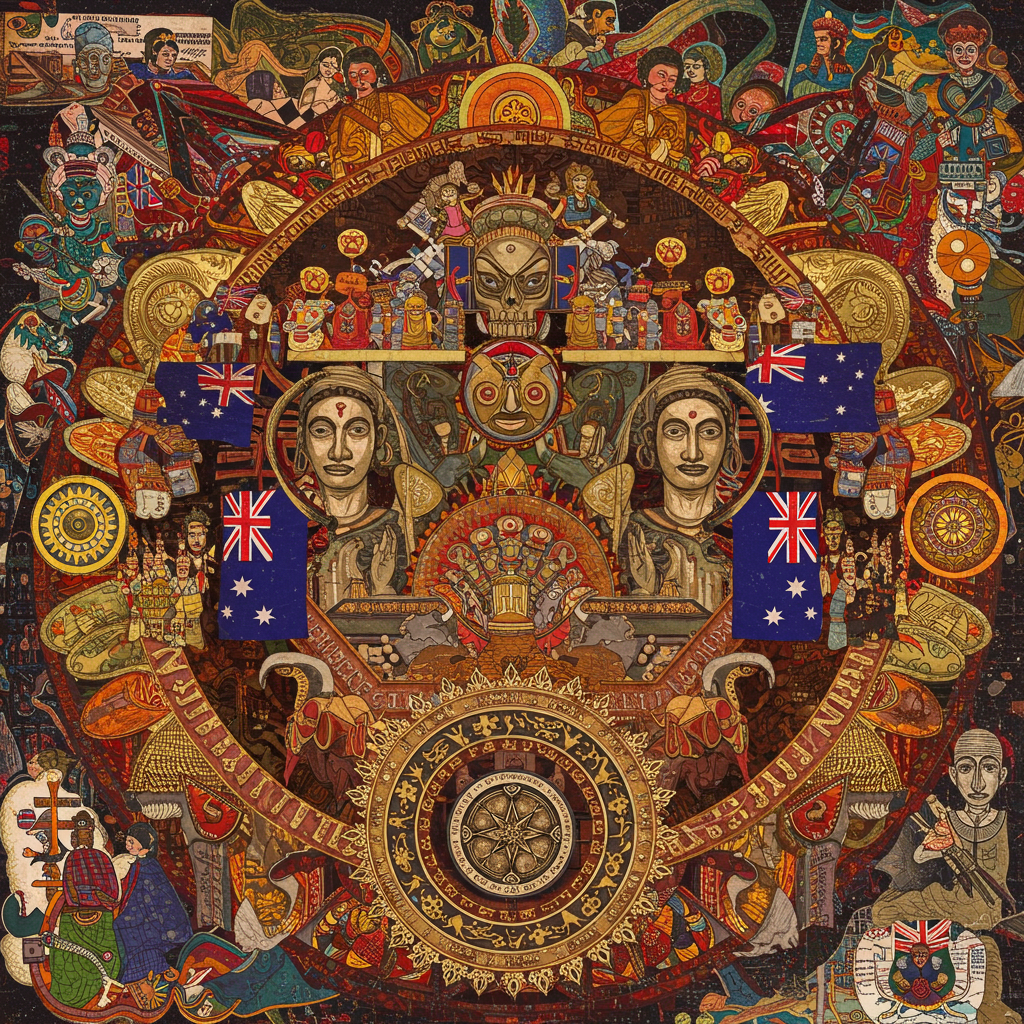The running world and countless admirers globally are mourning the passing of Fauja Singh, the beloved British-Indian supercentenarian widely known as the “Turbaned Tornado” and believed to be the world’s oldest marathon runner. Singh died at the remarkable age of 114 following a tragic hit-and-run incident in his ancestral village of Beas Pind, near Jalandhar, in Punjab, India, on July 15, 2025. Struck by an unidentified vehicle while crossing a road, he was rushed to hospital by local residents but sadly succumbed to his severe head injury. Police have launched a search operation to find the driver responsible for the fatal collision.
Fauja Singh’s life was a testament to resilience, purpose, and the extraordinary power of the human spirit, proving that age is truly just a number. His global fame stemmed from an astonishing running career that began when most people contemplate retirement – at the age of 89. Over the next 13 years, he completed nine full marathons, inspiring millions with his determination and positive outlook.
A Marathon Journey Begins at 89
Born on April 1, 1911, in British-ruled Punjab, Fauja Singh’s early years were marked by physical challenges. He reportedly had thin, weak legs and could not walk properly until he was five, often facing teasing from villagers. Growing up, he was a farmer with no formal education or involvement in sports, admitting he didn’t even know the word “marathon” existed in his youth. His life changed profoundly in the early 1990s after he endured immense personal tragedy, including the death of his wife, Gian Kaur, followed by the devastating loss of his younger son, Kuldeep, in an accident during a visit to India.
Overcome with grief, Singh moved to London in 1992 to live with his eldest son, Sukhjinder. Concerned by his deep sadness, which led him to sit for hours near his son’s cremation spot in India, villagers advised his family to take him back to the UK. It was back in Ilford, east London, while visiting a gurdwara, that he encountered a group of elderly men who ran together. This led him to meet Harmander Singh, the man who would become his coach and mentor, initiating a late-life journey that would redefine perceptions of aging and athleticism.
Overcoming Obstacles and Setting Records
Fauja Singh made his competitive marathon debut at the London Marathon in 2000, just a month before his 89th birthday. Running for BLISS, a charity supporting premature infants, his tagline “Oldest running for the youngest! May they live as long as him!” captured hearts. He completed the race in six hours and 54 minutes, a time significantly faster than the previous record for the 90-plus age category, signaling the start of something remarkable.
A memorable moment occurred before his first London Marathon when officials reportedly told him he could only wear a patka, not his full turban. Singh refused to run without his turban, stating later that the organisers allowing him to wear it was one of his biggest personal achievements. He dedicated himself to training, often running uphill with his coach Harmander Singh, which he credited for his improvements.
By his third London Marathon, he had shaved nine minutes off his time. At the Toronto Waterfront Marathon in 2003, aged 92, he achieved a personal best of five hours and 40 minutes, bettering his previous timing by an astonishing one hour and five minutes. He attributed his success largely to his coach’s strict regimen and the support and diet provided at the gurdwara he attended in London. In 2011, at the age of 100, he completed the Toronto Waterfront Marathon in just over eight hours, widely believed to be the first centenarian to finish a full marathon, though this was never officially recognized by Guinness World Records. Also in 2011, he set five age-group world records in a single day at a meet in Toronto. He retired from competitive long-distance running in 2013 after completing a 10km race in Hong Kong at the age of 101.
The Guinness Recognition Challenge
Despite his incredible feats and widespread recognition as the world’s oldest marathon runner, Fauja Singh’s claim was never formally validated by Guinness World Records. The reason centered on documentation. While his British passport listed his date of birth as April 1, 1911, and he received a congratulatory letter from the Queen on his 100th birthday, Guinness required official birth documents created in the year of his birth to certify the record. Coach Harmander Singh explained that birth certificates were not commonly issued in rural India during that era. Guinness officials expressed regret, stating they would have loved to give him the record but were bound by their stringent verification standards.
Beyond the Finish Line: Global Icon
Fauja Singh’s influence extended far beyond competitive running. His inspiring story and charismatic personality catapulted him to international fame. In 2003, he was featured in Adidas’s celebrated “Impossible is Nothing” advertising campaign alongside global sports legends like Muhammad Ali and David Beckham, introducing his story to a vast audience. He served as a torchbearer for the 2012 London Olympics, a poignant symbol of hope and perseverance.
He also received invitations from notable figures and countries, including the then Prime Minister of Pakistan for the inaugural Lahore Marathon in 2005. In 2006, he was invited to Buckingham Palace and met Queen Elizabeth II, a moment he cherished. Known affectionately as the “Turbaned Tornado,” he dedicated most of his earnings from endorsements and appearances to charitable foundations, particularly those supporting children, embodying his commitment to “Oldest running for the youngest!” His biography, titled “Turbaned Tornado,” was published in 2011, further cementing his legacy.
A Simple Secret to Longevity
Fauja Singh attributed his remarkable health and longevity not to complex diets or rigorous training fads, but to a simple, disciplined lifestyle and a deeply positive mindset. His philosophy, shared often in his later years, was distilled into an easily digestible message: “Eating less, running more, and staying happy.” He maintained this active lifestyle well into his final years, walking several miles around his village daily, emphasizing the importance of taking care of one’s own body.
In his final years, Singh divided his time between India, where his younger son lived, and the UK, eager to visit London again to see family and his coach. His life demonstrated that it is possible to find purpose, overcome adversity, and achieve incredible things regardless of past challenges or perceived limitations.
Tributes and Enduring Legacy
News of Fauja Singh’s death prompted an outpouring of tributes from around the world, recognizing his impact as an “icon of humanity and powerhouse of positivity.” Indian Prime Minister Narendra Modi called him an “exceptional athlete with incredible determination,” highlighting his enduring spirit. British MPs Preet Kaur Gill and Jas Athwal also paid tribute, celebrating his inspiring nature, discipline, humility, and legacy of resilience that will continue to inspire millions. Gill noted that his life was a reminder that “age is just a number, but attitude is everything.”
His running club and charity, Sikhs In The City, confirmed his passing with great sadness. They announced that all their upcoming events until March 2026 would be dedicated to celebrating Fauja Singh’s incredible life and achievements. The club is also doubling efforts to raise funds for building a Fauja Singh Clubhouse on his former training route in Ilford, ensuring his legacy endures through tangible community projects that reflect his dedication to running and charity. Fauja Singh’s story remains a powerful reminder that dedication, spirit, and finding joy can unlock extraordinary potential at any age.
Frequently Asked Questions
How old was marathon runner Fauja Singh and how did he die?
Fauja Singh died at the age of 114 on July 15, 2025. He passed away following a tragic hit-and-run incident in his birth village of Beas Pind, near Jalandhar, in Punjab, India. While crossing a road, he was struck by an unidentified vehicle and was taken to a local hospital by residents but succumbed to his injuries shortly thereafter. Police are currently investigating the incident.
Why wasn’t Fauja Singh recognized by Guinness World Records as the oldest marathon runner?
Fauja Singh was widely believed to be the world’s oldest marathon runner, with his British passport listing his date of birth as April 1, 1911. However, Guinness World Records requires official birth documents created in the year of birth for age verification. Such documents were not commonly issued in rural India during the period Singh was born, preventing him from providing the necessary proof according to Guinness standards.
What were some of Fauja Singh’s most notable achievements in running and elsewhere?
Fauja Singh began running competitively at age 89 and completed nine full marathons, including multiple runs after his 100th birthday. He set age-group world records in Toronto and achieved a personal best marathon time of 5 hours and 40 minutes at age 92. Beyond running, he gained global fame starring in the Adidas “Impossible is Nothing” campaign, served as a torchbearer for the 2012 London Olympics, met Queen Elizabeth II, and dedicated most of his earnings to charity. He is also remembered for his inspiring stance on wearing his turban while running.




